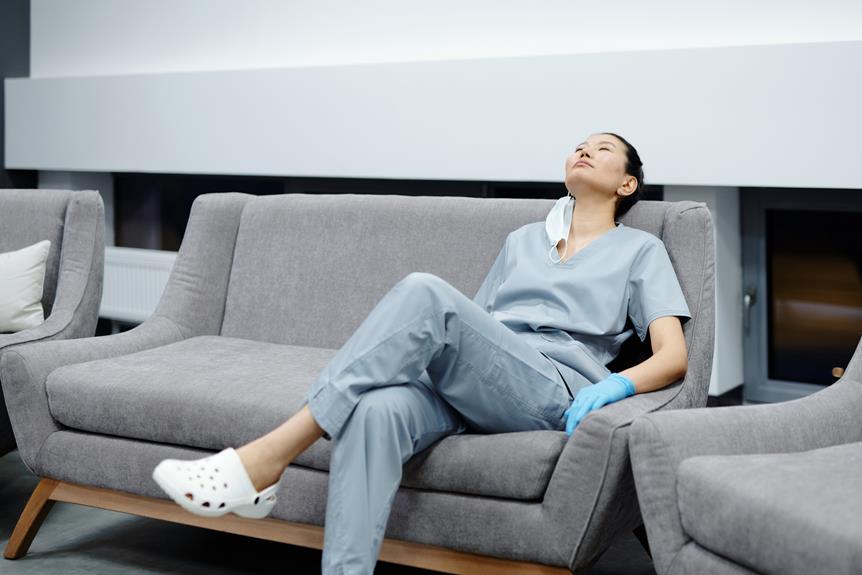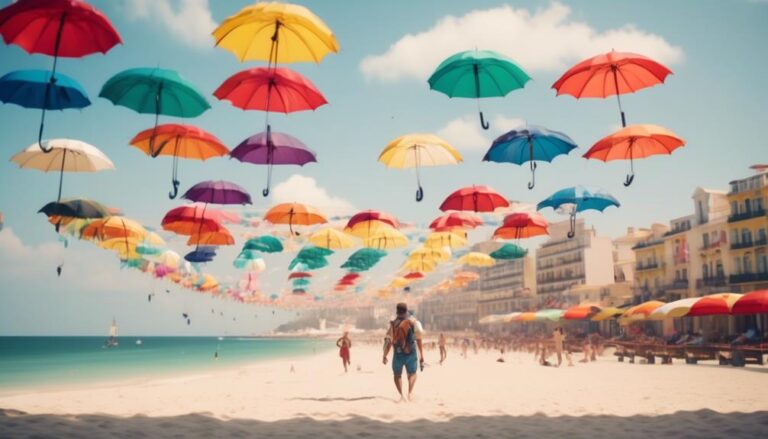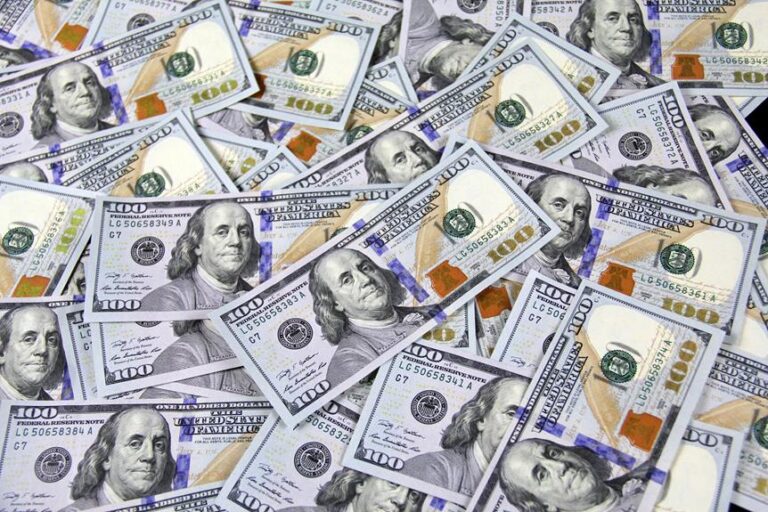According to recent statistics, masks have become an indispensable accessory for various individuals in a multitude of professions and situations. From healthcare professionals who prioritize the safety of themselves and others, to performers who use masks as a means of artistic expression, the importance of masks cannot be understated.
In this article, we will explore the diverse roles and situations where masks play a significant role, shedding light on occupations, cultural contexts, and popular culture. Join us as we delve into the world of those who wear masks to serve and protect.
Key Takeaways
- Healthcare professionals wear masks to prevent the spread of infectious diseases and create a sterile environment.
- Industrial workers wear masks to protect themselves from hazards like chemical fumes and dust.
- Masks serve unique purposes in unusual professions such as shamans, spiritual leaders, and beekeepers.
- Masks in popular culture and entertainment add intrigue, symbolize hidden identities, and protect against COVID-19.
Occupations That Require Masks
Occupations that necessitate the use of masks include healthcare professionals and industrial workers.
In the healthcare field, masks are essential for preventing the spread of infectious diseases. Doctors, nurses, and other medical staff wear masks during medical procedures to protect themselves and their patients. These masks are designed to filter out harmful particles and bacteria, ensuring a sterile environment.
In addition to medical professionals, industrial workers also rely on masks for their safety. These masks are specifically designed to protect against hazards such as chemical fumes, dust, and other airborne pollutants.
However, masks are not limited to practical use. Uncommon masks have found their place in the fashion industry, where they are used as accessories to make bold fashion statements.
From medical procedures to industrial work and even fashion, masks serve a crucial role in various occupations.
Unusual Professions With Masks
In addition to the well-known occupations that require masks, there are also several unusual professions where wearing a mask is essential for safety and protection.
These uncommon reasons for wearing masks may surprise you:
- Traditional Rituals: In certain cultural practices, masks hold great cultural significance. Shamans and spiritual leaders wear masks during rituals to connect with the spiritual world and protect themselves from negative energies.
- Beekeeping: Beekeepers wear masks and veils to protect themselves from bee stings. The mesh protects their face and allows them to work with bees without the risk of getting stung.
Masks serve various purposes in different professions, providing safety and cultural significance. Whether it's for spiritual rituals or safeguarding against insect stings, these unusual professions highlight the importance of masks in unique contexts.
Famous Characters Known for Wearing Masks
A notable individual who may be recognized for wearing a mask is a famous character. In the realm of popular culture, there are many examples of famous masked superheroes who have captured the imagination of audiences worldwide. Characters like Spider-Man, Batman, and Iron Man are iconic figures known for their distinctive masks that conceal their true identities. These masks serve both practical and symbolic purposes, allowing these heroes to protect their loved ones while creating a sense of mystery and intrigue.
Additionally, masks have also been used as fashion statements by famous characters in movies, such as the titular character in 'The Phantom of the Opera' and the masked ball attendees in 'Eyes Wide Shut.' These characters demonstrate how masks can be both functional and stylish in various forms of entertainment.
Masks in Popular Culture
Which famous characters in popular culture are known for wearing masks? Masks play a significant role in popular culture, often adding intrigue and mystery to characters. Here are some examples of different types of masks used in movies, literature, and other forms of entertainment:
- Superheroes: Characters like Batman, Spider-Man, and Iron Man wear masks to conceal their identities while fighting crime.
- Villains: Iconic antagonists such as Darth Vader and the Joker don masks to strike fear and maintain an aura of anonymity.
- Anti-heroes: The enigmatic V from 'V for Vendetta' uses a mask to symbolize rebellion against an oppressive regime.
- Performers: In the world of theater and masquerade balls, masks are used to transform and entertain.
The symbolism of masks in movies and literature varies, often representing hidden identities, alter egos, or the duality of human nature. Masks can also serve as a visual representation of power, fear, or deception, adding depth and complexity to storytelling.
Masks in Sports and Entertainment
Continuing from the previous subtopic, the use of masks in sports and entertainment adds a layer of intrigue and mystique to various personas and performances.
However, in the current context of the COVID-19 pandemic, masks have taken on an additional role in the sports and entertainment industry – that of prevention. Masks have become essential in minimizing the spread of the virus among athletes, performers, and audiences. They act as a physical barrier, reducing the transmission of respiratory droplets that may contain the virus.
While masks play a crucial role in preventing the spread of COVID-19, they also have a psychological impact on performers. Wearing masks can affect their ability to communicate effectively through facial expressions and may create a sense of detachment from the audience.
Nevertheless, the industry has adapted to these challenges, finding creative ways to maintain the excitement and engagement of sports and entertainment while prioritizing safety.
Masks in Everyday Life
In everyday life, many individuals, including essential workers, medical professionals, and members of the general population, wear masks as a preventive measure against the transmission of COVID-19. This includes the use of occupational masks in healthcare settings.
Here are two key points to consider:
- Occupational masks: Healthcare professionals, such as doctors, nurses, and medical technicians, wear masks as part of their daily routine to protect themselves and others from potential exposure to infectious diseases. These masks are designed to provide a higher level of filtration and protection.
- Masks in healthcare settings: In addition to medical professionals, patients and visitors in healthcare settings are also required to wear masks. This helps to minimize the spread of germs and protects vulnerable individuals, such as those with compromised immune systems.
Masks in Historical and Cultural Contexts
Exploring the historical and cultural significance of masks reveals the multifaceted roles they have played throughout various societies. Masks have been used in religious ceremonies across different cultures as a means of connecting with the divine or embodying spiritual entities. These masks often hold symbolic meanings and are believed to possess transformative powers.
In some traditions, masks are also used as a form of protest, allowing individuals to express dissent and challenge societal norms. The act of wearing a mask can provide a sense of anonymity and empower individuals to speak out against injustice or oppression. Masks used in protests can serve as a visual representation of collective grievances and can be a powerful tool for advocating for change.
In both religious and protest contexts, masks have the ability to convey deep cultural, spiritual, and political meanings.







